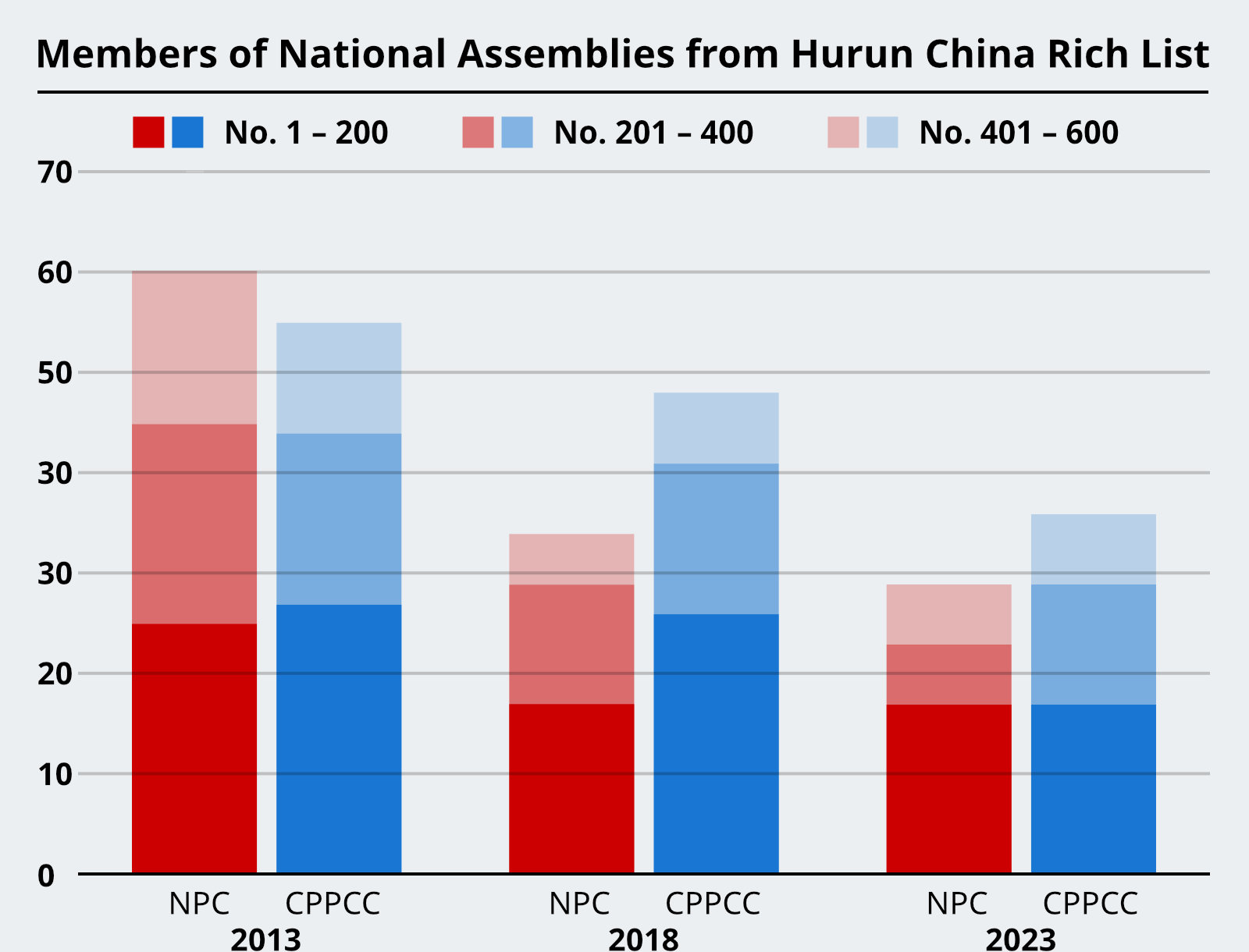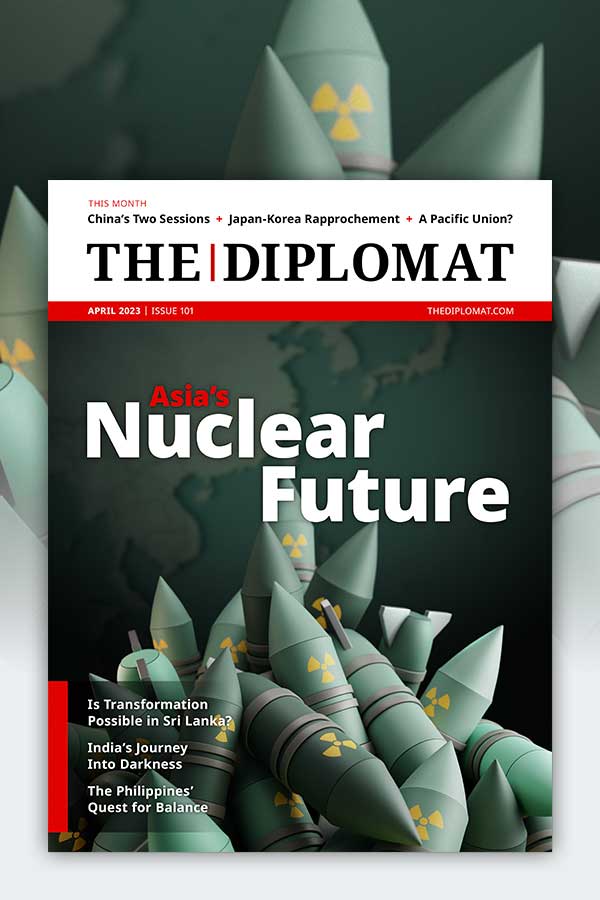| Welcome to the latest issue of Diplomat Brief. This week our top story outlines the increasing attacks on press freedom in Bangladesh. We also have an interview with Farid Tuhbatullin, the chairman of Turkmen Initiative for Human Rights and the editor of Chronicles of Turkmenistan, on the issues within his closed-off home country. |
| Story of the week | ![[object Object]](https://thediplomat.com/diplomat-brief/2023/vol16/images/feature.jpg) | Society In Bangladesh, the War on the Press Rages OnWhat Happened: On April 9, a group of 20-some men stormed the offices of the Prothom Alo, Bangladesh’s largest national daily. They defaced the newspaper’s logo and threatened to set fire to the office. It was not a random attack; earlier that same day, Bangladesh’s Prime Minister Sheikh Hasina put a target on the newspaper by calling it “the enemy of the Awami League, democracy, and the people of the country.” And prior to that, Prothom Alo’s editor and one of its journalists had been arrested on charges of violating the controversial Digital Security Act. Our Focus: As Bangladesh-based journalist Zarif Faiaz explained in an article for The Diplomat, the campaign against the Prothom Alo is part of a much broader attack on the free press in Bangladesh. Governments in Dhaka have always treated the media as their mouthpieces, and punished those who stepped out of line. But the current Awami League government under Hasina has taken things to a new level, making full use of the DSA. “The Center for Governance Studies (CGS) reports that since 2013, at least 4,500 people, the majority of them politicians and journalists, have been sued under the Information Technology (ICT) Act 2006 and its successor, the Digital Security Act,” Faiaz notes. The government has shut down papers and blocked websites for publishing “anti-state news.” And things are trending even farther down: “In the first three months of this year, a total of 56 journalists have been sued, tortured, harassed, intimidated, or obstructed from doing their jobs,” Faiaz writes. What Comes Next: With the Awami League government facing public discontent over economic malaise – and growing accusations at home and abroad of human rights violations and persecution of political opposition – Bangladesh’s government seems even more wary of critical media reports. That means the crackdown is likely to get worse before it gets better. “With the next general elections due early next year, and with a history of escalated media crackdowns right before elections, Bangladesh continues to be a dangerous place to be a journalist,” Faiaz warns. Read this story |
| Behind the News | INTERVIEW Farid TuhbatullinFarid Tuhbatullin, the chairman of Turkmen Initiative for Human Rights, on bringing international attention to Turkmenistan: “We decided to draw attention to our country through the purposeful demonstration of the absurd actions of Gurbanguly Berdimuhamedov. Let people see the “crazy dictator” … At least now many people know that there is a country called Turkmenistan and that it is ruled by a dictator.” Read the interview |
| This Week in Asia | Northeast Asia Attempted Bomb Attack Calls Japan’s Security Capability Into QuestionOn April 15, a young man threw a homemade explosive device at Japanese Prime Minister Kishida Fumio during a campaign rally in southern Japan. Kishida was unharmed, but the incident had disturbing parallels to the assassination of former Prime Minister Abe Shinzo less than a year ago – that assailant also used a homemade weapon against a high-profile politician at an outdoor campaign event. The security breach has raised questions about Japan’s ability to ensure the safety of foreign leaders during the G-7 summit in Hiroshima next month. Find out more | South Asia Former MP – and Alleged Gangster – Shot Dead in IndiaAtiq Ahmad, a former Indian lawmaker convicted of kidnapping and accused of murder, among other crimes, was shot dead while in police custody on Saturday. His killers yelled a Hindu slogan after the shooting; Ahmad was a Muslim. The attack is part of a long string of extrajudicial killings in India, speaking to a loss of faith in India’s rule of law and its justice system. Find out more | Southeast Asia Myanmar Air Strike Kills At Least 170Condemnations continue to issue forth following a Myanmar air force attack on April 11, which targeted a ceremony held by opponents of the military junta in Sagaing Region. The death toll, initially thought to sit at around 50, has climbed steadily this week, and now sits at more than 170, making the air attack the deadliest since the coup of February 2021. The attack, which has been condemned by the United Nations, a host of Western governments, and current ASEAN chair Indonesia, has led to redoubled calls for foreign countries to cut off the military’s access to aviation fuel and other vital military supplies. Find out more | Central Asia Uzbek-Russian Billionaire's Businesses Hit With SanctionsAlthough Alisher Usmanov was personally targeted with sanctions soon after the Russian invasion of Ukraine in 2022 given his close ties with Russian President Vladimir Putin, his businesses have only now been directly hit with recently announced U.S. and U.K. sanctions. Most of the businesses designated are located in Russia, but at least one is in Uzbekistan – heightening worry in the region that Central Asia could come further into the crosshairs as the war persists. Find out more |
| Visualizing APAC |  | China’s “Two Sessions” – the annual NPC and CPPCC meetings – have seen declining participation by China’s richest entrepreneurs since Xi Jinping came to power. See the full picture |
| Word of the Week | Security စစ်တပ်Sit-tat, Burmese for “military.” Many Burmese, especially among those who oppose the military junta, prefer this name for the country’s armed forces over the more respectful official name, “Tatmadaw.” Find out more |
|  |




![[object Object]](https://thediplomat.com/diplomat-brief/2023/vol16/images/feature.jpg)

